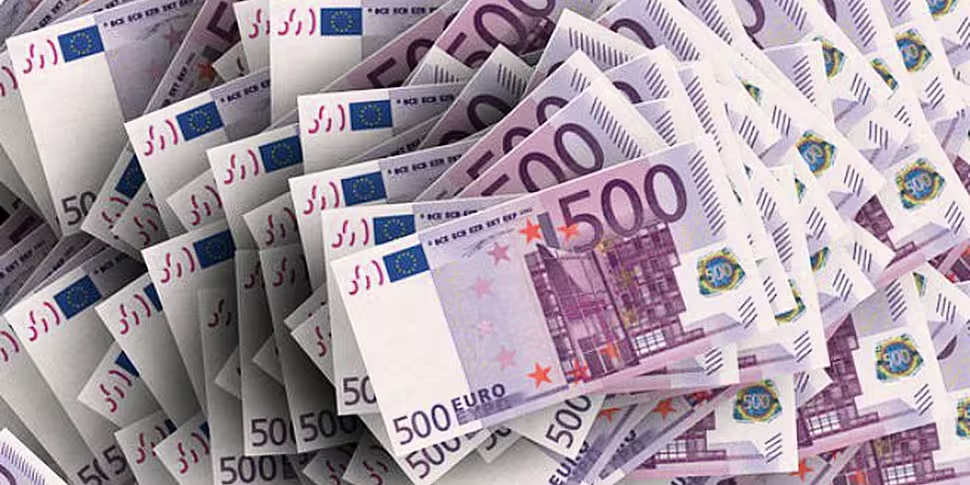The euro has hit its lowest value against the US dollar since March of 2006 - falling by 0.4 percent to $1.1950. This is part of a larger trend that has seen the euro depreciate by 12 percent during the last year.
Two stories that appeared in German publications have pushed the currency to this latest low, however.
Germany and a possible 'Grexit'
German magazine Der Spiegel published a story claiming that German Chancellor, Angela Merkel and her government, are prepared for a Greek exit from the euro if the anti-austerity Syriza party lead the country's next government. The Greeks will vote in a snap general election on January 25th and Syriza is leading in opinion polls.
The article argues that the Chancellor and Germany's finance minister, Wolfgang Schaeuble believed that Greece leaving the currency-bloc would be "manageable".
It also said that the German government thinks reforms in the euro zone since the last euro-crisis mean that the threat of contagion from a new economic crisis in Greece would be limited.
Neither the office of the Chancellor, nor the finance minister have confirmed or denied whether the Spiegel story is accurate.
The positions indicated in the story have been condemned by members of Mrs Merkel's CDU party.
A spokesman for the German government released a statement insisting that Berlin believes that Greece will remain in the euro zone and meet its commitments to its creditors that are outlined in the country's EU/IMF bailout programme.
Christian Baeumler, a prominent member of the CDU criticised the comments that appeared in the story, saying: "If anyone believes a Greek exit is manageable, they should show exactly what costs can be expected and make the necessary funds available."
Syriza has altered some of its economic policies and indicated its preference for Greece to stay in the euro zone.
You can expect the euro's value to remain shaky between now and the election.
Mario games
ECB president Mario Draghi has also been causing waves in the German media. He gave a rare interview to the financial newspaper Handelsblatt which has created similar downward pressure on the euro.

Euro value against the US Dollar over the last seven days, XE.com
This graph shows both a dip after the publication of the ECB president's interview on Friday, and a second dip after the Spiegel story.
The interview is interesting as it plays out the clash that has been dominating ECB matters for some time - a growing rift between Mr Draghi and German officials over the possible introduction of a US-style quantitative easing (QE) programme in Europe.
Mr Draghi's main message was that the ECB was getting further and further away from its mandated target of two percent inflation across the monetary union - and that it is preparing to take action to chase this goal.
It has been indicated that the bank could make a major announcement in the first quarter of 2015.
The ECB Governing Council's next meeting is on January 22nd - just three days before the Greek election. It is likely that uncertainty regarding that vote will mean that the bank will not take any serious action this month.
This interview is the latest in a string of public comments from the ECB president that has lead to decreases in the value of the euro.
When asked if he had encouraged the depreciation of the currency Mr Draghi replied: "The exchange rate is not an ECB policy target, even if the exchange rate is important for price stability and growth. The recovery is weaker and unemployment is higher than expected a few months ago. That has contributed to a weak exchange rate. It’s a natural outcome of diverging monetary policy path in the US and the euro area."
The 67-year-old Italian has previously vowed to do “whatever it takes” to save the euro - he is due to remain ECB president until 2019.
The falling currency values signal that the market is betting that the ECB is close to a major bond-buying programme.
Cheap euro and the Irish
Ireland is well positioned to benefit from a decrease in the value of the euro. While there is uncertainty regarding the nature of the growth figures being recorded by the Irish economy - exports from Irish companies will be central to the country's recovery. Falling euro values makes domestic goods more appealing in other markets.
Irish tourism had a very strong 2014, and it has projected to grow again in 2015. Low euro values will make Ireland more appealing to travellers from non-euro countries like the US and the UK. Favorable exchange rates could tempt more tourists to come to Ireland.









